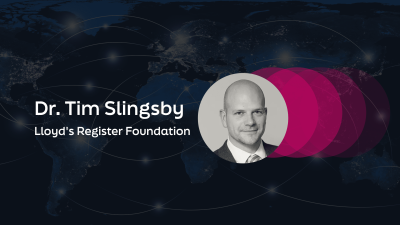
Improving access to redress for workers vulnerable to violence and harassment in South Asia
Experts discuss the factors that make some workers more vulnerable than others to violence and harassment.
This page is approximately a 4 minute read
This page was published on

Communication is at the heart of saving lives across the world but it must be approached with sensitivity towards the different audiences experiencing harm.
Much data exists across the world about the threats people face on a day to day basis. Problems such as severe weather, violent crime, traffic and transportation accidents, are well documented. What is highlighted far less frequently is how particular strategies to tackle the effects of these threats have already made a difference to world safety. For example, every day occupational accidents lead to the deaths of more than 1000 people across the world. Over 70 per cent of these fatalities occur in Asia, with at least one-third in the emerging economies of the SE Asia region, where an estimated 124,000 fatal occupational accidents occurred in 2015. The International Labour Organisation (ILO) suggests that occupational accidents and fatalities could be significantly reduced if workforces were trained to implement recognised safety practices. If the rate of fatal occupational accidents in the region were reduced to European levels, more than 100,000 lives would be saved every year.
An ambition of Lloyd’s Register Foundation is to influence actions to reduce risk, accidents and deaths. The data from the World Risk Poll is vital for understanding what the world experiences and worries about but the data alone won’t make a difference. It is when we communicate the information to people who can translate it into action, that the data will really be working. When governments, regulators, NGOs and businesses recognise the need to improve safety in the workplace, they can make a dramatic difference. Initiatives such as the World Risk Poll enable decision makers to develop targeted strategies for empowering people, on the basis of real information.
At the heart of this is understanding who people listen to. Sometimes trusted authorities are regulatory bodies, for example, but as the World Risk Poll shows, vulnerable people are turning to religious leaders, celebrities and medical professionals and not necessarily government institutions, for information on crucial safety issues such as the food they eat and water they drink. If Lloyd’s Register Foundation and our partner organisations are to reach people who are currently experiencing harm, we have to widen information channels to embrace sources different audiences trust. This adds a requirement to be insightful and creative in our approach to audiences if we are to be effective.
The way different groups of people view their personal safety is shaped by many varied factors, including personal experience, exposure to different media, location, gender and age. Each audience receives information via different channels and understands it in different ways. The World Risk Poll shows, for example, that the traditional ways of expressing data in percentages and ratios, are difficult to understand for many people. Messages to these audiences therefore need to be expressed in a different way to have impact. In areas such as perception of risk it is easy to alienate audiences by failing to understand what creates their fears and beliefs. Sensitivity and understanding are required to build bridges to key communities.
Similarly, much of the world’s trusted and internationally-recognised safety regulation structure has been developed in the Western world. Communication about safety is therefore predominantly aimed at western cultures. We need to find ways to adapt these structures to make them relevant in other geographic regions and cultures. The interventions that the relevant organisations can make to act on the data revealed in the World Risk Poll, must be well targeted to circumvent the many pitfalls that can prevent messages being received and used to make change happen.
When communication is handled well the effects are far reaching. There are many outstanding examples of communications programmes that have radically changed behaviour at a grass roots level. Campaigns such anti-smoking and HIV prevention have reached people across all different backgrounds and circumstances using communications strategies tailored to different audiences. Lloyd’s Register Foundation can do the same for safety across the world by finding equally impactful means to empower people to take action to help keep them safe.